5.0 Spray Irrigation
A number of spray irrigation system options are available for land-based wastewater disposal. These systems include: rapid rate infiltration, overland flow, slow rate spray irrigation, and drip irrigation systems (residential and commercial sizes). This online discussion will not include rapid rate and overland flow treatment options, because these systems are generally not suitable for applications in Pennsylvania. These systems are typically unsuitable because of site conditions, concerns associated with potential groundwater and surface water impact. In addition, the overland flow option requires that the water undefinedbe collected following the overland flow treatment and then disposed of or recharged using an another method. This online discussion will concentrate on slow-rate spray irrigation and drip irrigation systems. The spray irrigation alternatives include: slow-rate spray irrigation, low-volume spray irrigation (< 2000 gpd),drip irrigation and individual residential spray irrigation system.
The general system or site limitations are as follows:
- (a) The maximum slope of the undisturbed soil where a spray field may be permitted is 25%.
- (b) Spray fields are not permitted on:
- (1) Soils with evidence of a seasonal high water table at less than 10 inches from the surface.
- (2) Soils with rock formations at less than 16 inches from the surface.
- (3) Floodplain soils or flood-prone areas unless any required encroachment permits have been obtained from the Department and the encroachment is in compliance with local ordinances pertaining to flood areas.
- (4) Agricultural areas in active production of food for human consumption.
- (c) Slopes shall be as follows:
- (1) Open, grassed areas limited to 12%.
- (2) Forested areas limited to 25%.
- (3) Nonfood producing agricultural areas limited to 4%
- (d) Spray field sizing based upon soils characteristics shall be in accordance with Table B in § 73.16(e) (relating to absorption area and spray field requirements).
- (e) Construction shall be as follows:
- (1) The area upslope of the spray field shall be graded or bermed to divert upland drainage from the spray field site.
- (2) The downslope portion of the permitted spray field shall be graded or bermed to retain effluent on the permitted spray site.
- (3) The permitted spray field shall be covered with vegetation.
- (4) Construction activity within the spray field site shall be conducted in a manner which will minimize earth disturbance and compaction.
- The provisions of this § 73.163 issued under section 9 of the Pennsylvania Sewage Facilities Act (35 P. S. § 750.9); The Clean Streams Law (35 P. S. § § 691.1§691.1001); and section 1920-A of The Administrative Code of 1929 (71 P. S. § 510-20).
- The provisions of this § 73.163 adopted November 7, 1997, effective November 8, 1997, 27 Pa.B. 5877.
- More on Conventional Spray Irrigation (> 2000 gpd), Drip Irrigation and Individual Residential Spray Irrigation Systems and <2000 gpd.
We are in the process of setting up Face-to-Face Courses. They will be posted here at our New Training Portal - Training Professionals Online Training Courses. We will be scheduling courses in soil science, soil morphology, hydric soils, and water sampling.
Udemy Featured Courses - 30,000+ Self-Enrichment Courses
Continuing Education for Engineers and Related Professionals (PDH)

